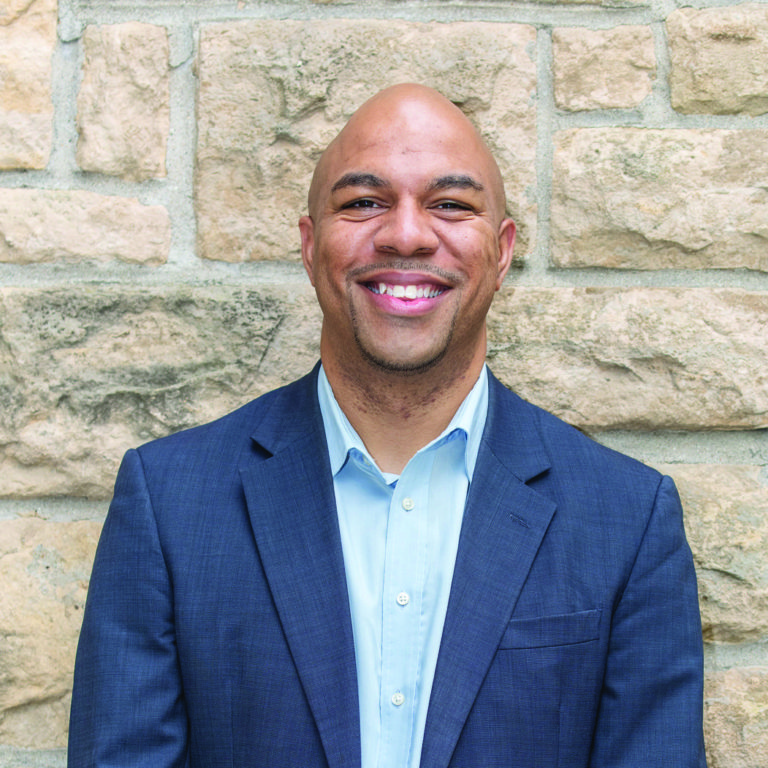
Madison’s mayoral candidates have been busy attending forums around the city and hosting events to hear from residents as the Feb. 19 primary election approaches. The following Q&A and upcoming Northside candidates forum (details on p. 17) give Northsiders an opportunity to hear from the candidates on the topics that most affect their communities.
The Northside Planning Council sent candidates Maurice Cheeks, Nick Hart, Toriana Pettaway, Satya Rhodes-Conway, Raj Shukla and Paul Soglin the following questions. Responses received by press time are published here and have been formatted for AP style, but not proofread. Any additional responses will be available at northsidenews.org.
Question one: affordable housing development
Affordable housing has become a hot topic in Madison with a growing population, rising income inequality, high rental rates and vacancy rates hovering at two percent. Many residents are no longer able to afford to live in the city. Often redevelopment zones with affordable unit requirements fall in areas like the Northside, where more land is available, but where there is also already a high density of low-income residents, reinforcing the city’s historical pattern of housing segregation.
What policies will you implement to balance the need for more affordable housing with the need to desegregate Madison’s neighborhoods and schools?
Question two: community input
Madison’s Northside is home to many community groups and organizations. We are also poised to see a significant amount of redevelopment in the near future. Residents have expressed frustration in the past that their input ultimately doesn’t appear to impact development decisions. What strategies will you leverage to ensure that community voice is an authentic and substantive part of the decision-making process and that decisions are reflective of as many voices as possible?
Question three: transportation
The Northside is woefully underserved by public transportation, and many of our residents face hours-long bus rides to get to jobs across town. The Northside needs leadership committed to improving our access to the rest of the city. What is your plan for improving transportation access on the Northside?
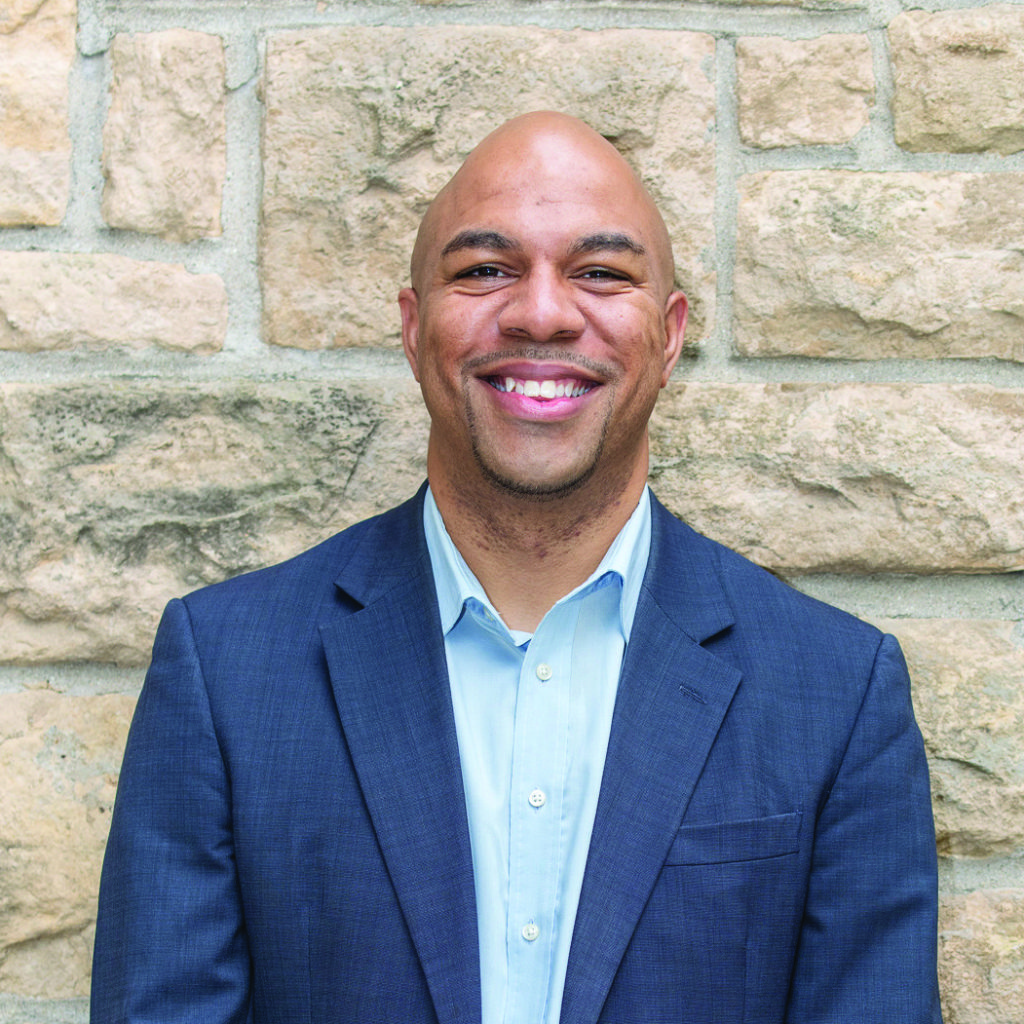
Maurice Cheeks
Question one: Affordable Housing Development
Everyone should be able to afford to live with dignity in our city. We have to stop pricing families out of living in Madison, and we must end the long pattern of producing segregated neighborhoods. Having neighborhoods full of various levels of income is part of the recipe for vibrant schools and community. As mayor, I’ll ensure we do not build any isolated neighborhoods like Owl Creek where we know residents would benefit from services that are available elsewhere. I’ll also prioritize using TIF for affordable housing projects, and I’ll double the affordable housing fund while emphasizing supportive housing and housing that is affordable to working-class families.
Question two: Community Input
Harnessing the voice of neighbors is something that I’ve had to do as an Alder representing one of the most socioeconomically diverse districts in Madison. As mayor, I will prioritize continuing to build and draw upon authentic relationships in our neighborhoods. One of my priorities is to not only follow up on the feedback the city receives from community groups but show results based on their feedback. This is what I did as I engaged youth in the Allied community to design a basketball court and a new park in the neighborhood. This is what I did while working to save a bus route that would have been shut down due to the Verona Road reconstruction. And this is what I did as I worked to close the persistent food desert in the Allied neighborhood. As mayor, I will maintain my commitment to not only listening to the community’s voice as we continue to grow and diversify as a city, but I will make sure that our neighborhood groups and organizations have a seat at the decision-making table. My office will work collaboratively with alders on the north side, and throughout the city, to ensure that they have the support needed to engage neighbors early in the planning stage of any important project.
Question three: Transportation
Having a citywide Bus Rapid Transit that starts at Warner Park and connects the rest of the city is going to be a game changer for the northside. We can’t afford to wait another decade to see action on bringing access to some parts of the city while everyday families are spending unreasonable amounts of time commuting to work, school, and getting groceries. In order to seriously address service for those that are most dependent upon public transportation, I’d begin by prioritizing the creation of park and ride locations for bus riders to be able to use. I’d expand bus service at night for late-shift workers and I’ll work with employers to improve access to jobs in the in the region by providing their employees with subsidized bus passes or coordinating with them to provide strategic rideshare or carpool programs. And while we address these urgent needs of our residents, I’ll provide the much-needed leadership to work collaboratively with other communities and the state to get Bus Rapid Transit funded and moving.
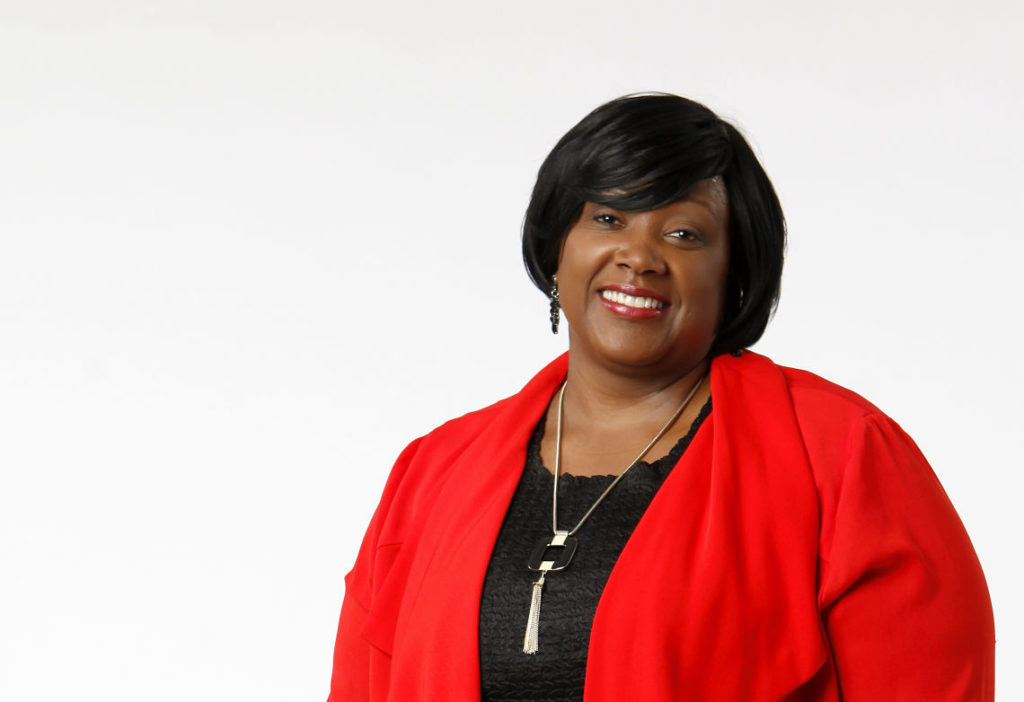
Toriana Pettaway
Question one: Affordable Housing Development
The policies I will you implement to balance the need for more housing affordable with the need to desegregate Madison’s neighborhoods and schools first by secure the needs of parents, and guardians income to a real livable wage not $15 (suited for youth) but $21-$22 hour with full benefits, sick leave and vacation time.
Question two: Community Input
As mayor all residents will have the opportunity through public participation to build the seat and the inform the table, to see tangible benefits from investments of redevelopment in the future. All City Boards, Committees, and Commissions will be rebalanced for public decision-making and establish standards ensuring shared power across race, class and gender and all departmental leadership positions.
Question three: Transportation
I would redistribute buses where people have the greatest needs based off of HUD levels of poverty/income, where people go to work, school, and are transportation dependent.
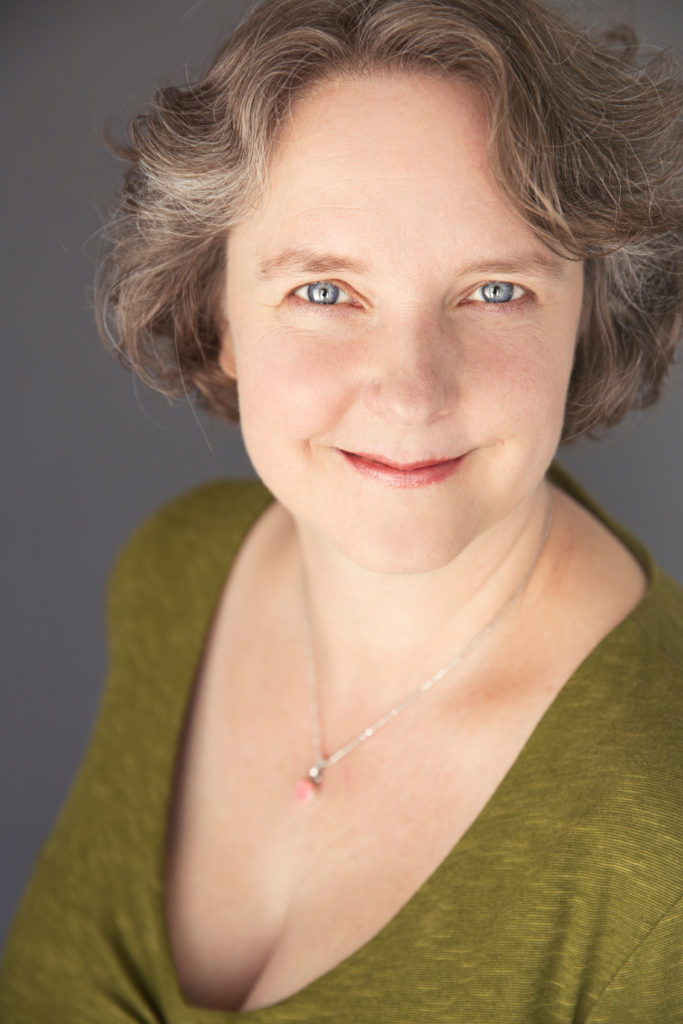
Satya Rhodes-Conway
Question one: Affordable Housing Development
Addressing our affordable housing crisis requires building more housing — at all price points, and all over the city. Some neighborhoods need more market-rate housing; others need more affordable housing; others need both. We need to use a broad range of solutions to address our affordable housing crisis. As mayor I will:
- Expand the allowable uses of the Affordable Housing Trust Fund to include anti-displacement efforts and land banking for affordable housing
- Focus on preserving and improving existing affordable housing
- Fully leverage Tax Increment Financing [TIF] and the Affordable Housing Trust Fund to encourage the production of more affordable units in all neighborhoods
- Support and encourage housing cooperatives as an affordable solution for people of all ages and all walks of life
- Support land banking for affordable housing
- Support and encourage land trusts as an affordable ownership solution
- Encourage the creation of more tiny house villages, backyard cottages, and “granny flats”
- Support the creation of more co-housing
- Explore waiving requirements like parking minimums and setbacks, and allowing a density bonus for projects containing significant number of affordable units
Of course, affordable housing is only part of the picture. We need affordable, accessible transit (see question 3), quality child care, access to healthy food, energy and water efficiency services to help control utility bills, and other cost-saving measure to help families succeed. And we need to make sure people have access to good jobs by removing barriers to employment and encouraging local hiring for construction and new businesses. We can also promote shared prosperity via cooperative businesses and equitable development.
Question two: Community Input
Madison needs to do a better job of authentically engaging communities, especially those who have been historically excluded from participating in local government. I’m open to exploring an office of resident engagement. We should be regularly soliciting input, rather than just when there is a plan or project to react to. As the Alder for District 12, I worked hard to make sure my constituents had a voice in decisions, but we can’t rely just on individual elected officials — we need to incorporate community input into the city’s process. One way to facilitate this is through the resident panels that were developed to diversify input into Imagine Madison, the comprehensive plan update. These panels were managed by community-based organizations under contract with the city, who did outreach and got feedback on the plan. As mayor, I will expand the use of this model to other departments and issues, so we can hear regularly from residents on a range of concerns.
One issue the Northside will need to have input on in the very near future is the redevelopment of the former Oscar Mayer site. As chair of the Oscar Mayer Strategic Assessment Committee, I encouraged community input, through our meetings, an open house, and working with a consultant to make sure we heard from a wide range of people. We heard what the community’s hopes and fears were, and I worked with committee members and staff to make sure that input was incorporated into our report. We also included a specific recommendation that the next phase of this work — the development of a Special Area Plan — must include a well-funded public input process, and commitment to reporting back to the community on the results of that input. I will bring this commitment to engagement into the mayor’s office.
Question three: Transportation
We need to do a much better job of serving folks that need or want to commute to work via transit, but don’t work downtown or on campus, or don’t work a 9 to 5 job. I’ve been advocating for better transit on the Northside — and across the city — for over a decade now. I worked closely with Metro to support improvements to the system while on the Council, and I’ve been a regular bus rider for almost 20 years.
To really improve transit in this city, we need to build a bus rapid transit (BRT) system. Madison Metro describes BRT as “a high-frequency limited-stop transit system that offers faster more direct service using larger vehicles to increase capacity.” To do this, we need to upgrade our Metro facilities, and build partnerships with the County and surrounding municipalities until the State restores our ability to form a Regional Transportation Authority. One of the BRT lines must serve the Northside — I have been advocating for a line up Packers Aveue to the Airport. In addition, BRT will allow us to use regular buses to provide better service to underserved neighborhoods, including the Northside. We’ll also need to focus on providing service around the clock. As mayor, building a BRT system will be one of my top priorities.
To make sure our BRT system is successful, we will need to promote transit-oriented development, including affordable housing, and work with institutions, employers, and building managers to make it easy for people to take transit for most — or all — of their transportation needs. This might mean discounted bus passes, guaranteed rides home, integrating bike and pedestrian facilities with BRT, or other ways of encouraging transit use.
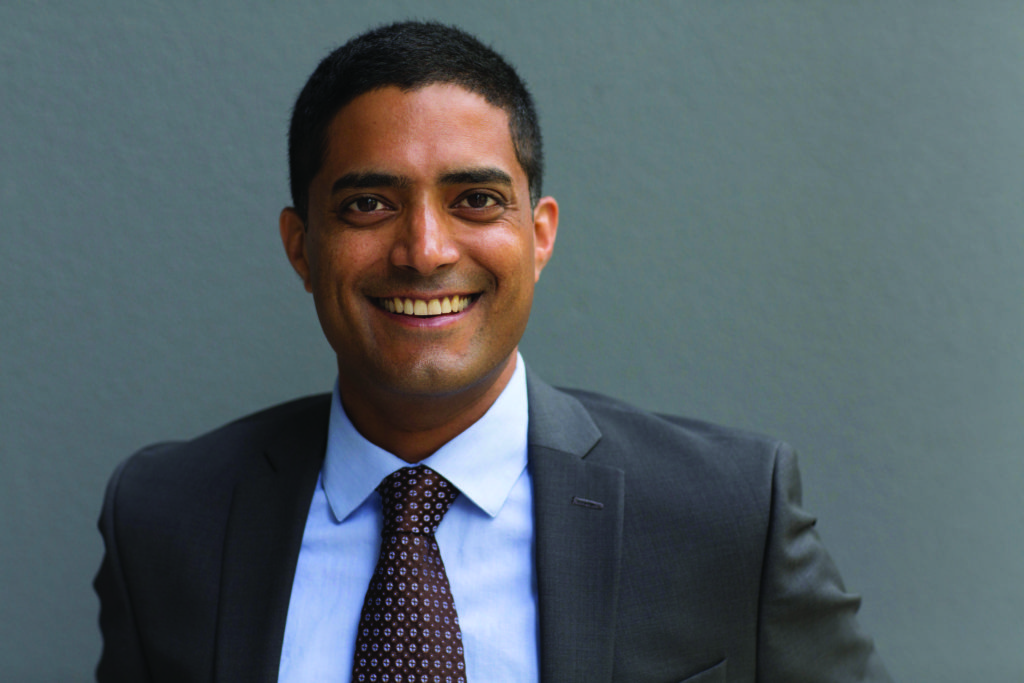
Raj Shukla
Question one: Affordable Housing Development
The cost of housing is high in Madison. And not just for new families and young professionals. Seniors on fixed incomes struggle to keep up with increases in taxes as a result of rising assessment. We can use the Affordable Housing Trust Fund to work to keep people in their homes.
Our city is made great by its diverse communities and residents; we cannot afford to have people pushed out by unreasonable costs. We will not build a wall around our great city. Everyone must be welcome. The city supporting new homes is essential to making housing affordable for many. We can grow our city in a responsible and green way, by prioritizing projects that meet higher environmental standards. This will help us combat climate change and help people who are struggling by keeping monthly utilities low.
Madison can make it easier to add housing choices while we maintain the character of the city. Policies that encourage new models like “tiny homes,” support first-time homeowners, rehabilitate rental properties, and expand green homes through Property Assessed Clean Energy (PACE) financing should be a priority. We should also refocus TIF on affordable housing and we have to look at cities like Minneapolis who have reformed their zoning and eliminated Single-family zoning.
Single-family zoning was historically used to keep people of color from certain neighborhoods, but we can find a Madison solution that works for everyone. One that is welcoming, and diversifies the city, but still maintains the vibe of the city we love and call home.
To do any of it, we must engage the community in a dialogue around the need to create spaces for more people. Madison is already changing. Our goal is to ensure Madison changes for the good of all, not the few.
Question two: Community Input
Right now, many of the city committees are advisory only. I think we are in need of a change that will bring more voices into the process.
The city committee I currently chair, the Sustainable Madison Committee, was advisory when I joined. But it didn’t have to be. When I became chair, the group decided that we wanted to be more active and write city legislation. And we did. We got the community involved, and we built a coalition of support that even included the utility company. I’m proud to say that under my leadership, Madison has already committed to 100% renewable energy. I believe the city government must reach this goal by no later than 2030, with the rest of Madison following suit by 2045.
As mayor, I want to empower the city committees and ask more people to get involved. I want to use them to bring more people into the process, specifically more young people. We also need to go out into the neighborhoods and search for people who are impacted by these policies, ask them to serve and then give them real agency in the process.
For too long the Northside and the Southside have felt left behind, I think at least partly because Madison has been missing leadership. I’ve loved this town since I was 7, but we need to stop talking about the problems and actually start working towards the solutions. That’s what I do every day as an executive director of a statewide water policy organization. I set a vision and lead a talented team. Madison is growing, and I believe we can lower costs, make room for everyone and do it in a way that is good for our economy, our people and our environment.
Question three: Transportation
We must move towards fare-free transit, green our fleet and expand our service. The bus is not just an “option” for many people. It is a necessity.
Many people can’t afford a car. Others aren’t able to drive because of age, disability or medical concerns. People who use transit save an annual average of $10,000 over those who drive. This impacts everyone — the single parent, families, people of color, people like my daughter who is unlikely to drive, and the 20% of Wisconsin’s seniors who do not drive. Even our young college graduates say they would be more likely to stay here if they could get around without driving.
We need to look at our transit system as an extension of our roads, not as an alternative to cars. Metro has to be for everyone.
It is an investment in our city. Better transit brings more businesses and people to our city, and we can increase our transit in a green way that is healthy for our citizens and our environment.
Sadly, in recent years, we have not added the space to significantly increase our bus fleet. Our “bus barn” remains inadequate to meet growing transit needs. I support developing a Bus Rapid Transit system and Transit Oriented Development as a long term strategy. In the short term, we should explore design changes to better accommodate the needs of those who rely on transit most.
As mayor, I will establish a transit equity council to imagine a transit system that works for everyone. I will explore options to create fare-free or extended service zones that compensate for slow service, add service options and drive investment toward areas that need it most, like the Northside.
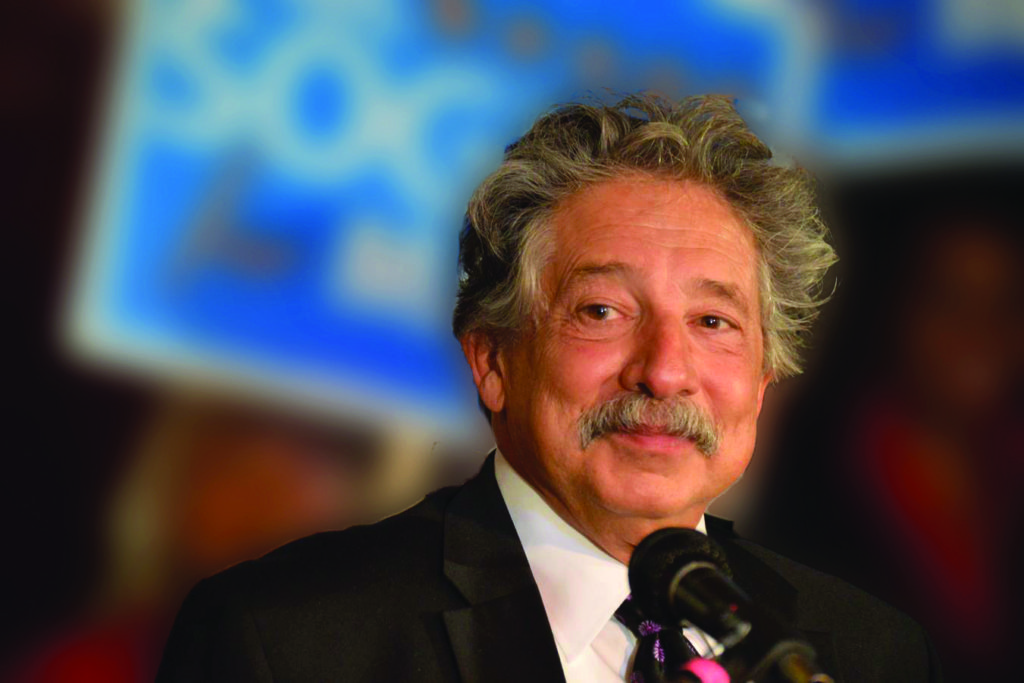
Paul Soglin
Question one: Affordable Housing Development
I will continue to fund the Affordable Housing Fund, which supports low income and workforce housing and I will continue our efforts to locate that housing all over the city: Tree Lane on the far west side, and the Union Corner and Rethke sites on the east side. We have made progress: Madison neighborhoods are more diverse economically and racially than they were eight years ago.
While Madison had a vacancy rate of around 1.7–2 percent from about 2011‒2013, the MG&E non-summer vacancy rate is between 3.0–3.2 percent, while another source puts it a little above 4%. This improvement came from our apartment construction — market, workforce, and affordable — of over 6,000 units. It is a result of a number of changes instituted under my leadership regarding zoning, the addition of millions of TIF money, and more effective strategies to obtain federal tax credits. Not only are we building more housing but the ratio of income to rent cost is improving. Yes, rents are up on average, but with area incomes rising and more units, working people are spending less of their income on housing than they were eight years ago.
Question two: Community Input
The Northside has some of the best and most effective community leadership in Madison. The long-term success of the Northside Planning Council is a testament to that. The success of the Warner Park Community Center, a multi-million dollar city commitment and the only one of its kind in the city with a range of activities for seniors, teens and even childcare, is proof of great neighborhood leadership. Other successes include the FEED Kitchen, the renovation of Vera Court and its center, the Madison Mallards participation at Warner with extensive community input, and the successful expansion and preservation of the Cherokee Marsh.
The next challenge in your wonderful area is the future of Oscar Mayer. I would like to believe that the inclusive processes used in establishing the Northside Planning Council and now the Oscar Mayer Committee will continue in the future. This will also be reflected in my appointment of diverse membership to city boards, committees, and commissions.
Question three: Transportation
The entire city is challenged with crowded buses and service that is too infrequent. We need State authority in the form of a Regional Transit Authority (RTA) which would provide us the revenues to purchase more buses (by the way, we plan to go to an all-electric fleet) and implement Bus Rapid Transit (BRT). To date, the state government has refused to do so. I look forward to partnering with communities in the Fox River Valley and around Racine to get this much needed legislation passed with the support of Governor Evers. With the adoption of an RTA, and success in securing a federal grant we are pursuing, we can look forward to more frequent and faster service from the Northside to the rest of Madison and even out to Sun Prairie.